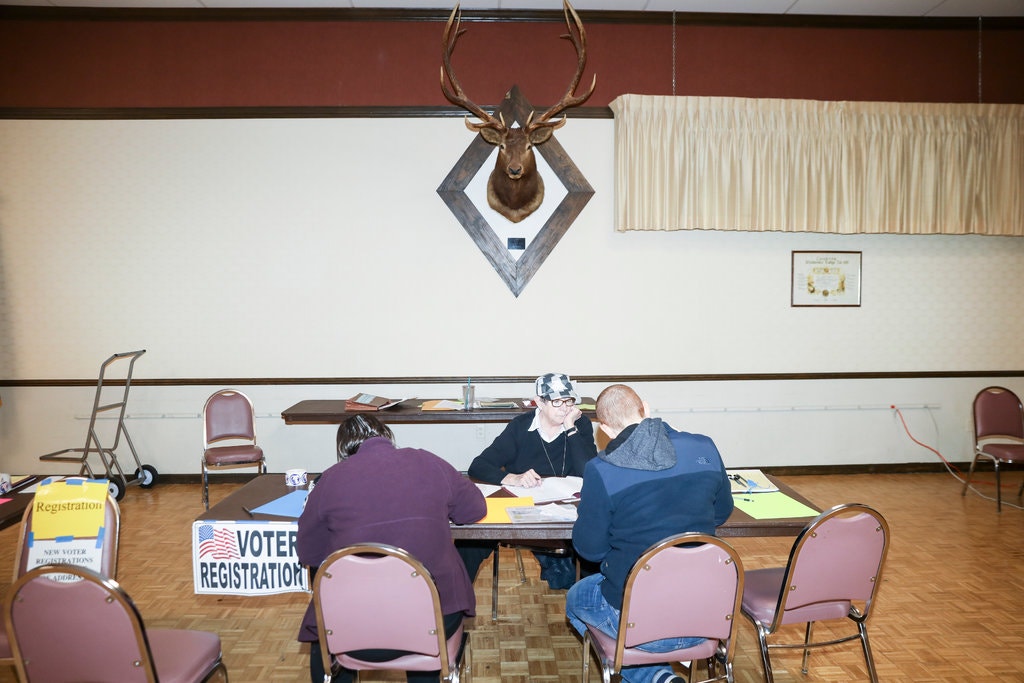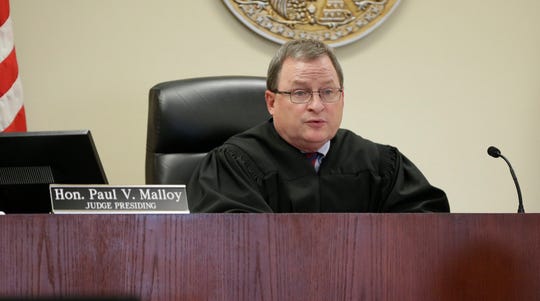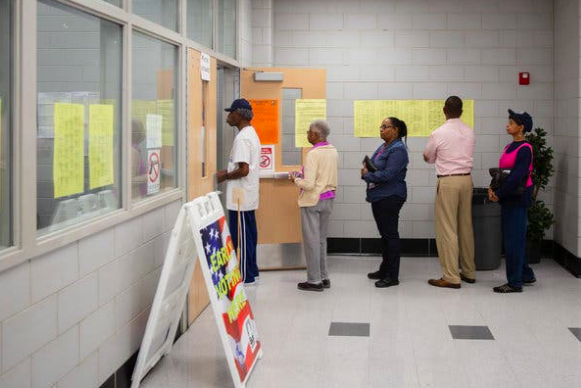2019 Reports:
For more information about these reports and the Voter Purge Project methods, please contact info@voterpurgeproject.org.
2019 Reports:
For more information about these reports and the Voter Purge Project methods, please contact info@voterpurgeproject.org.
For more information about these reports and the Voter Purge Project methods, please contact info@voterpurgeproject.org.
For more information about these reports and the Voter Purge Project methods, please contact info@voterpurgeproject.org.
Daily Kos – February 11, 2020
Georgia Republicans have been working hard to get voters off the rolls, and indeed, they reduced their numbers by 7% in last year’s purge. The bad news for those Republicans, however, is that nearly as fast as they throw voters off the lists, new ones—in large part younger and more racially diverse—are registering.

There was a 3% increase in registered voters in the last year, and new voter registrations outpaced the purges of 2016-2018, with 902,000 new voters replacing the 797,000 removed during that time. Another 98,000 were purged late last year, in what was a limited win by Stacey Abrams’ group Fair Fight Georgia: The original plan had been to delete more than 300,000.
The share of voters aged 18-34 has increased by 68% over the last three years, to comprise almost a third of the state voters. The share of white voters has decreased since 2016 as well, though whites are still a 59% majority of those who identify their race when they register. In 2016, that share was 62%. The state began automatic registrations at driver’s license offices in September 2016, which account for about 1.1 million of the new registrations. But it’s not just that, as voter registration drives have been activated ahead of the 2020 election, when Georgia will have two U.S. Senate seats and three open House seats as well as the president on the ballot.
“We’re seeing an aging cohort that’s majority white, and then you’ll see an increasing younger age cohort [that’s] majority nonwhite,” Mike Carnathan, manager of research and analysis for the Atlanta Regional Commission, told The Atlanta Journal-Constitution. “That’s exactly what the future of metro Atlanta holds when it comes to the composition of the population.”
Read the rest of the story at the Daily Kos website.
11 Alive – Georgia – February 10, 2020
ATLANTA — A federal judge, this week, ruled against Gov. Brian Kemp in a lawsuit filed against him in 2018, while he was still Secretary of State.
The federal lawsuit was initiated by freelance journalist Greg Palast along with Helen Butler, executive director of Georgia Coalition for the People’s Agenda.
According to the suit, Kemp, in his role as secretary of state, was accused of using a racially-biased methodology for removing as many as 700,000 legitimate voters from the state’s voter rolls during a period between 2016 and 2018.
Read the rest of this story on 11Alive’s website.
A legal challenge over who can vote in Wisconsin has set off a furious fight, a reflection of political tension in a pivotal state for the presidential race.
Jan. 14, 2020
By Mitch Smith and Michael Wines
MADISON, Wis. — It began with what seemed like a simple question: If a computer says voters have moved and are no longer eligible to vote at their old addresses, should the voters be struck from the rolls even if the computer has a history of mistakes?

When Wisconsin election officials first pondered the question a few months ago, it ruled unanimously against the computer and for preserving the voters’ registrations, at least temporarily. But what once seemed a matter of electoral housekeeping has morphed into a political cage fight that has sprawled across four courts, split the state’s Elections Commission and spurred intimations of voter suppression and voter fraud.
In other words, it is business as usual in Wisconsin, a partisan hothouse where elections can turn on onionskin margins and every ballot is potential booty in a political death struggle. Memories of President Trump’s victory in Wisconsin in 2016 by fewer than 23,000 votes remain fresh. And as Americans gird for a raucous election year, the scuffle over who stays on Wisconsin’s voting rolls may also portend similar struggles nationwide.
PORT WASHINGTON – An Ozaukee County judge on Friday ordered the state to remove hundreds of thousands of people from Wisconsin’s voter rolls because they may have moved.

The case is being closely watched because of the state’s critical role in next year’s presidential race. Circuit Judge Paul Malloy also denied the League of Women Voters of Wisconsin’s petition to intervene.
Lawyers for the League and for the Wisconsin Elections Commission indicated they will appeal and asked Malloy to stay his ruling pending those appeals, but he declined.
At issue is a letter the state Elections Commission sent in October to about 234,000 voters who it believes may have moved. The letter asked the voters to update their voter registrations if they had moved or alert election officials if they were still at their same address.
The commission planned to remove the letter’s recipients from the voter rolls in 2021 if it hadn’t heard from them. But Malloy’s decision would kick them off the rolls much sooner, and well before the 2020 presidential election.

Voting rights advocates described the removals as troubling, saying it was just the beginning of efforts to suppress the vote in battleground states.
By Nicholas Casey
Oct. 30, 2019
A coming purge of Georgia’s voter rolls has raised alarms among advocacy groups in the state and nationwide, many of whom see the issue of who gets to cast a ballot re-emerging with next year’s election, particularly in battleground states.
This week, Georgia state officials said they would be removing about 300,000 names from their lists of eligible voters, a number that amounts to almost 4 percent of those registered to vote. The state said the move is a normal part of updating records after voters have moved away or stopped casting ballots.